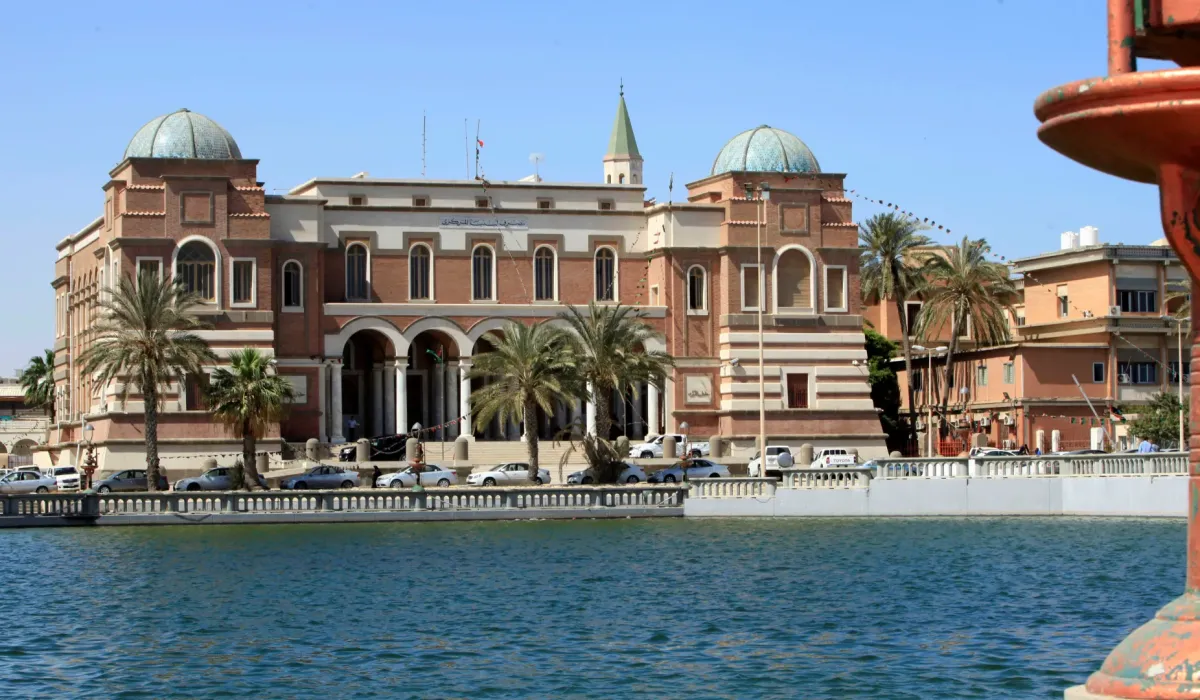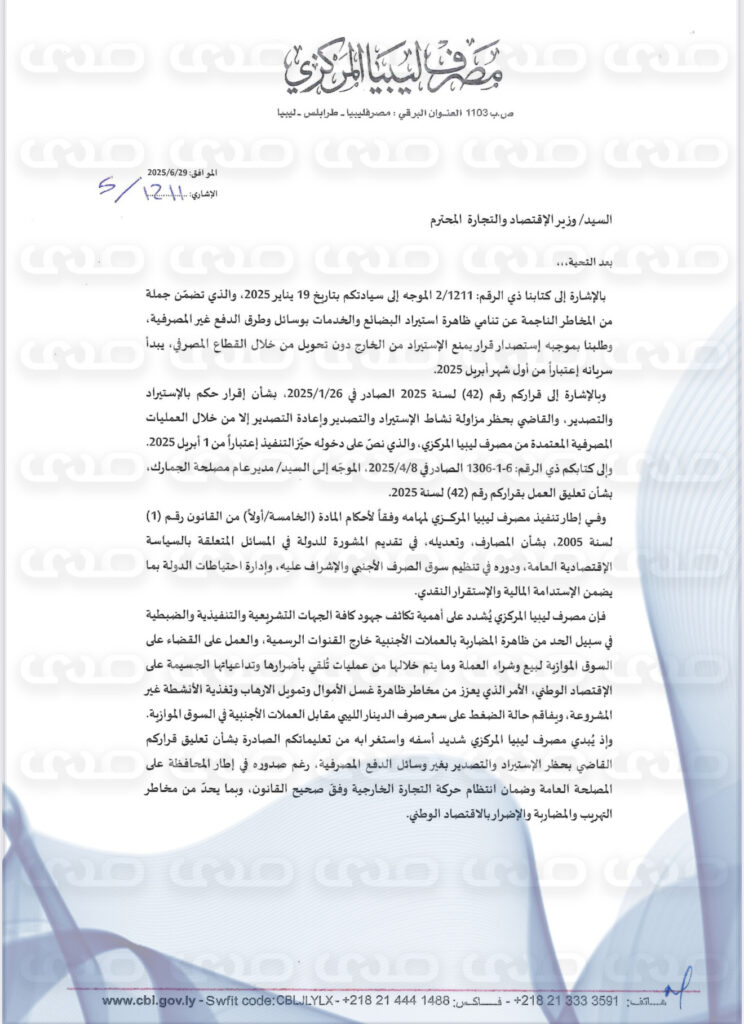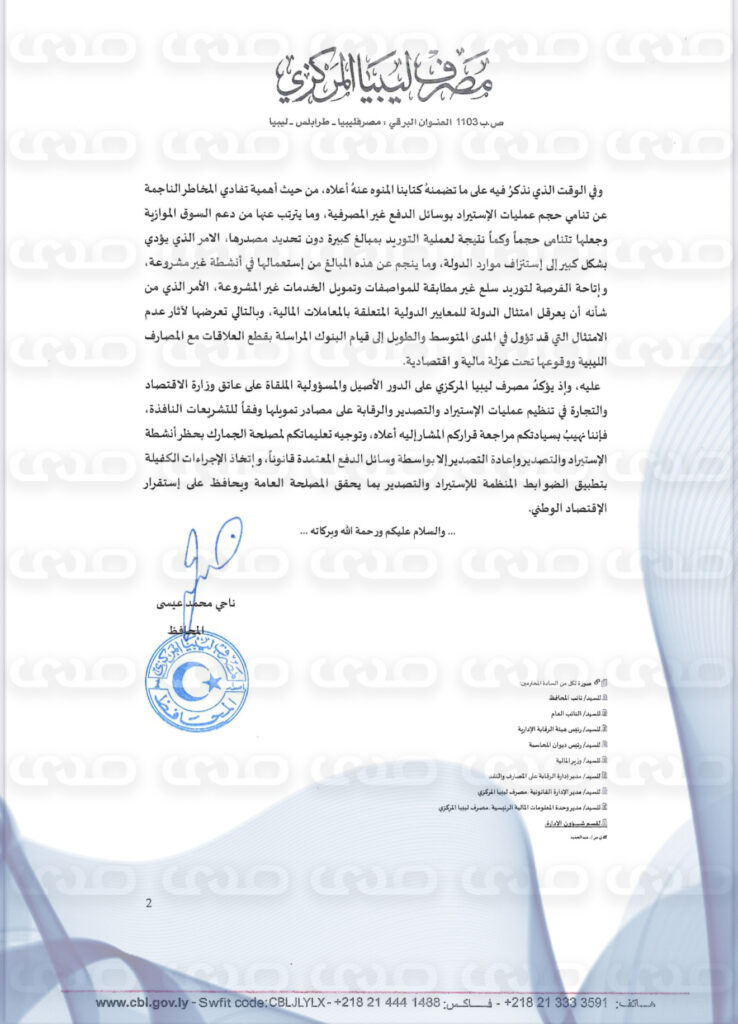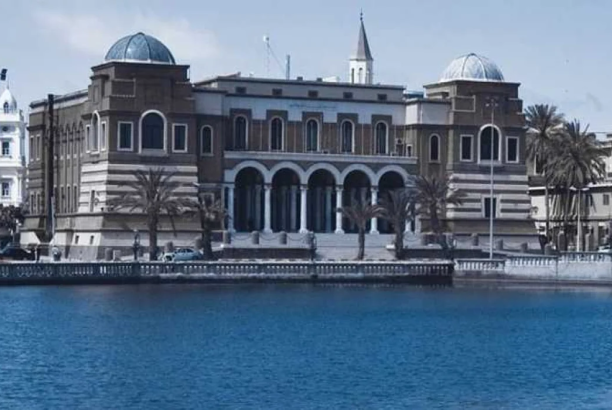
| News
Exclusive… Central Bank Governor to Al-Huweij: Suspending Your Decision to Ban Import and Export Through Official Channels Encourages Smuggling and Threatens Financial Isolation
The Governor of the Central Bank of Libya, in a letter addressed to the Minister of Economy of the Government of National Unity, called for the resumption of the suspended decision regarding the regulation of import and export activities. This decision stipulates that the practice of import, export, and re-export should be restricted solely to banking operations approved by the Central Bank of Libya.
The letter, exclusively obtained by our source, included a request to issue instructions to the Customs Authority to prohibit import, export, and re-export activities unless conducted through legally approved payment methods, and to take the necessary measures to enforce the regulations governing imports and exports in a manner that serves the public interest and preserves the stability of the national economy.
The Central Bank Governor told Mohamed Al-Huweij: “The Central Bank of Libya expresses its deep regret and astonishment at your instructions to suspend your own decision that bans import and export through non-banking payment methods, despite the fact that the decision was issued in the interest of the public good and to ensure the regularity of foreign trade in accordance with the law, while mitigating the risks of smuggling, speculation, and damage to the national economy.”
The Governor added: “While we reiterate the contents of our aforementioned letter regarding the importance of avoiding risks arising from the growing volume of imports through non-banking payment methods—and the consequent support of the parallel market, which continues to grow in size and volume due to the inflow of large sums of money from unknown sources—”
The Governor continued: “This situation greatly depletes the state’s resources and allows such funds to be used for illicit activities, including the import of substandard goods and the financing of illegal services. This, in turn, could hinder the state’s compliance with international standards related to financial transactions, which may eventually lead to correspondent banks severing ties with Libyan banks, exposing them to financial and economic isolation in the medium and long term.”







